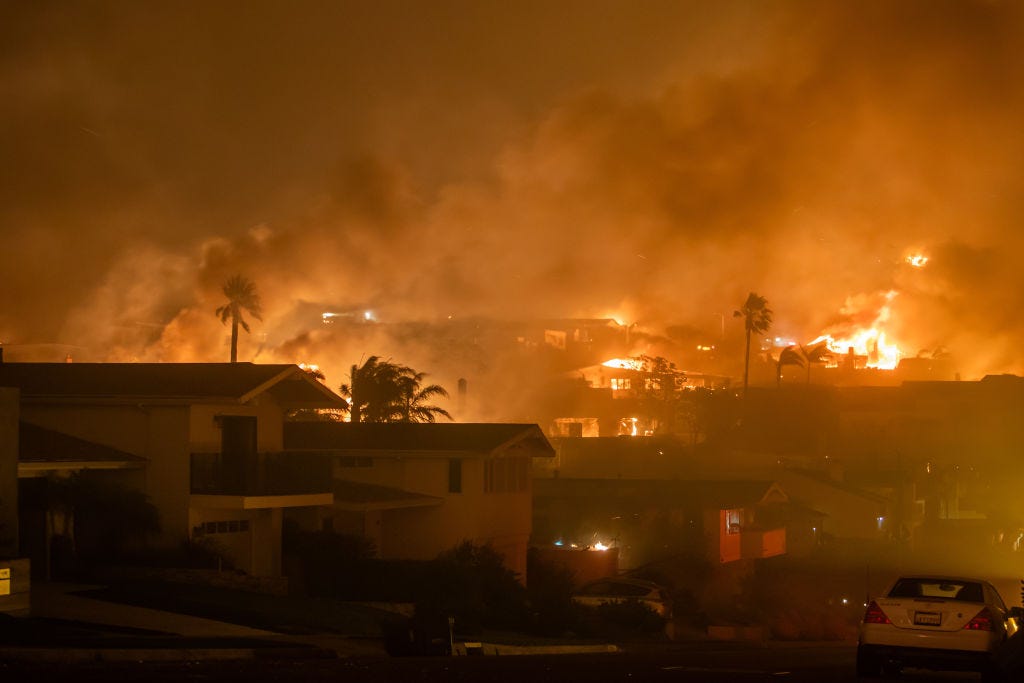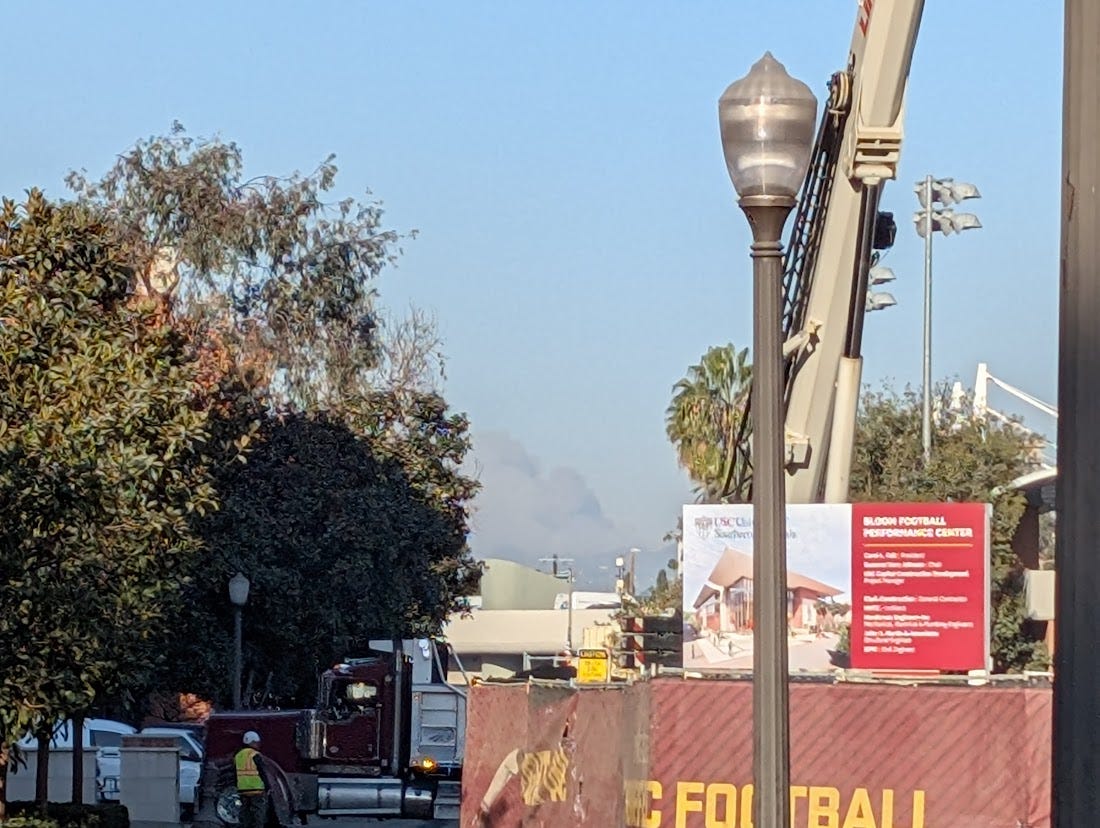You Can’t Write Vague And Censorship-Friendly Editorial Guidelines And Then Pretend They Won’t Apply In The Real World
A conference dispatch
I’m writing this from a conference at the University of Southern California called Censorship in the Sciences: Interdisciplinary Perspectives. It’s hosted by the USC Dornsife Center for Economic and Social Research.
To answer the questions I’d ask attendees if I weren’t here: No, we are not close enough to the fires to be in any real danger; yes, things seem normal in this particular neighborhood; and yes, it feels weird to be at an academic conference in a county where tens of thousands of acres are on fire.
This morning, we were walking from the hotel to the conference venue, and look, there’s a gigantic freaking fire blotting out a chunk of the horizon. Not a great photo, but still — pretty surreal:
Given the direction we were facing, that must be the (largest by far) Palisades fire.
I also met a Blocked and Reported listener named Tommy here who is from Altadena, and whose neighborhood was destroyed by the Eaton fire. His house was spared, but he, his wife, and his two kids have been displaced and are currently staying with his mother-in-law. He generously shared some videos and photos of his neighborhood which you can view here. In short — and surely I am not telling you anything you don’t already know — there’s an unfathomable level of destruction going on not far from here, and I don’t really know what else to say about it.
Conference-wise, I’ll be giving a short talk tomorrow on “soft” and self-censorship in journalism on youth gender medicine, and if you’d like you can watch it for free on Zoom at 4:30 p.m. Eastern tomorrow (1:30 p.m. local California time). In fact, the entire conference is being streamed, and the whole calendar is enticing, so hopefully some of you can tune in to the other talks as well.
Most of the speakers and attendees here are on the same page about “censorship in the sciences” being a problem on some level, though the concept is fundamentally open to interpretation, and some of the talks and panels have focused, usefully, on basic definitional and philosophical issues. I’ve also appreciated the inclusion of some dissenting voices.
This morning’s proceedings, for example, were kicked off by a pretty big voice on the “other side.” We heard, via Zoom, from Stavroula Kousta, chief editor at Nature Human Behavior. Kousta is the author of a 2022 editorial in that journal titled “Science must respect the dignity and rights of all humans,” which laid out some new policies for Nature’s various journals, and which kicked off a bit of a controversy.
In this newsletter, I pointed out that while it’s hard to come out as opposed to dignity and rights for all humans, the actual publication policies being enacted by the journal would make it very easy to suppress, alter, or retract basically any remotely controversial research. And as I titled the piece, “It Is Bad To Alter Or Retract Published Research That Has No Factual Errors, Even If You Are Doing It ‘For Social Justice’. ”
Keep reading with a 7-day free trial
Subscribe to Singal-Minded to keep reading this post and get 7 days of free access to the full post archives.



